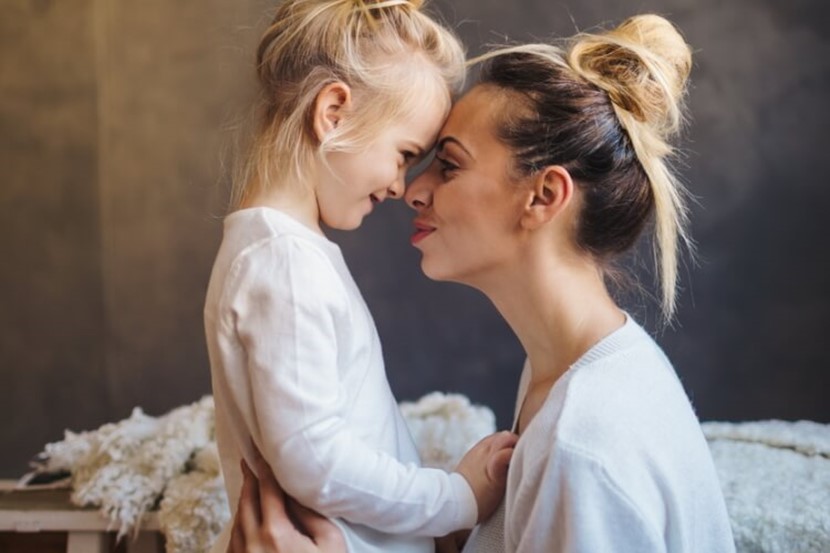What really happens when you listen to your kids?

Child and adolescent therapist Dr Anna Martin shares her successful methods for conflict-free child discipline.
There’s a multitude of advice out there on disciplining your children but one Kiwi voice is cutting through the confusion. Using research and practical knowledge, Dr Anna Martin has come up with effective strategies that put listening and the wellbeing of children before lecturing. Former OHbaby! editor Marianne Falconer asked Dr Martin, who's also an adult and couples therapist, to share her views on effective family discipline strategies and techniques.
How do we do encourage kids to do what they're told and to listen while keeping a connection with them?
This question is frequently asked. Simply put, kids are more likely listen when they feel respected (just like adults), so the connection needs to be the priority. Parents and kids need some crucial ingredients to help with connection and assist kids to listen and learn from their parents. Two ingredients include parents accurately understanding their child’s perspective and ensuring kids know what we are saying. For example, in one study nearly 50% of kids aged between 11-12 years did not understand the words their parents used let alone the lesson their parent was trying to impart. Many of us believe that we need to get ‘louder’ and ‘tougher’ to get our children to listen. Nothing could be further from the truth. The book provides more detail regarding what parents and kids need in order to maintain the connection and to assist children to listen and follow through.
How do we help build resilience in our children? What role does self-compassion play here?
Children really do need resilience in today’s world. Self-compassion, a resilience tool, does not rely on external validation, such as social media likes or achieving a grade. When children are confronted with challenges it is helpful for them to be kind to themselves and to understand that their experiences/emotions are valid and normal. We parent according to our interpretation of the world. Historically, children have been seen and not heard, which is incredibly invalidating and difficult for them to understand their emotions. It is helpful to normalise our emotions and recognise that we all experience similar anxieties and self-doubts. When we are compassionate with our friends we also need to practice self-compassion.
Can you explain what the AND model to discipline is and why you recommend it?
The AND method is a new and very quick discipline method introduced in this book for parents. Parents are busy and cannot always reflect on what might be influencing their responses. Current discipline methods tend to focus on parents asking, telling then implementing a consequence if their child does not follow through. The simple to use AND method enables parents to effectively work with their children without sacrificing the really important elements needed to support children’s well-being.
Time out vs Time in? What’s your perspective on these discipline strategies?
I am really not a fan of time-outs at all. Time-outs became a replacement to smacking, yet the process of time-outs can be fear-based and punitive. Time-outs do not allow for a respectful process to unfold between parent and child and in a sense the child is vulnerable to the parents physical size and emotional response. There are more helpful ways to respond when a boundary is needed, as discussed in my book.
We want peace and harmony in our home, but at the same time we fear being too soft on our kids. How do we get a good balance?
Yes, this is such as a common fear. If you find yourself feeling anxious that you are being too soft on your kids and they need tougher boundaries you are not alone. Kids need boundaries as it helps them to feel safe. The balance is implementing a boundary in a way that is transparent, compassionate and recognises their perspective. Kids still might not like the boundary, but they will understand it more when it is discussed and done in a fair way.
Is child discipline linked to anxiety and depression later in life?
Many things contribute to disorders later in life and our parenting is one of them unfortunately. Children are resilient and when we make parenting mistakes it does not mean our children will develop a psychological issue. However, we can minimise the risk by how we approach parenting. For example, punitive parenting can increase the risk of anxious behaviours. Yelling and shouting at your child places them more at risk of becoming aggressive. Parents model behaviour, children internalise the meaning and learn from it.
You introduce the concept of ‘repair the rupture’. What do you mean by this?
This is so important and many of the current discipline methods do not focus on this part of the discipline process. When we have had a disagreement with our child we do need to be open to discussing the issue afterwards, if they want to. Parents may not be aware that children can and do also regulate the parent/child relationship, so they will find a way to be more comfortable with what just happened by, for example, blaming themselves. While it is helpful for them to consider their own behaviour, it is not helpful for them to be really hard on themselves. This is where parents can check in to ensure children see things as a learning opportunity rather than one of blaming. It helps with children’s development.

